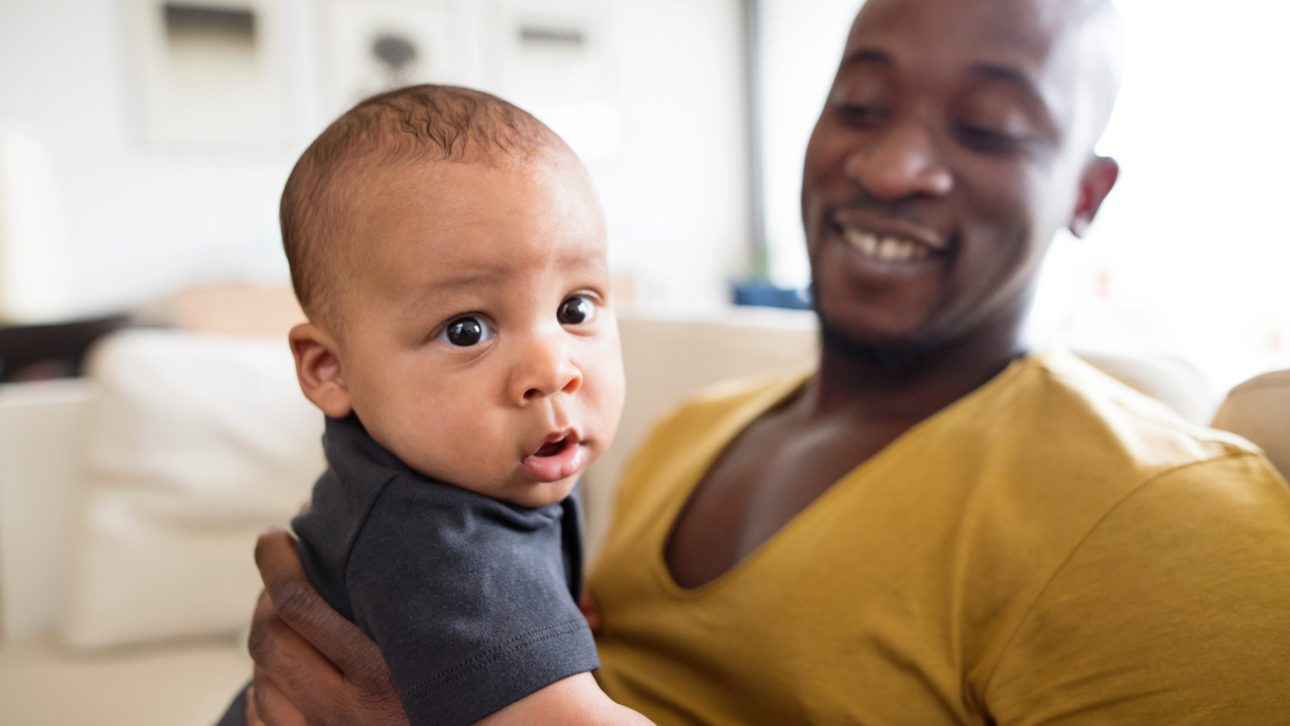Spreading the word to parents that words matter
- January 29, 2018
- / Reggie Dogan
- / category-feature

It is an unfortunate reality that more than 1,000 children in Escambia County every year are behind when they walk in a kindergarten class.
Research shows that kindergarten readiness is among the most important measures of a child’s academic progress. Children who are behind in kindergarten are more likely to be behind in third-grade reading, and they rarely catch up throughout their school careers.
That puts them at risk of being more likely to not graduate high school on time, something that will limit their future job opportunities, diminish the overall workforce and ultimately impact the quality of life for everyone in the Pensacola metro area.
But all is not lost. There is hope and help, and we strive to provide some of both through a concerted, consistent commitment to early education initiatives.
In fact, Studer Community Institute is working to become America’s First Early Learning City, a place where all parts of the community work as one to make sure every child is ready for kindergarten.
The road to creating an Early Learning City includes partners in the community, in schools and in homes to spread the word to parents, grandparents and caregivers about the power of talk to build a baby’s brain.
To a baby’s brain, the most important time in life is before the third birthday. Those first 36 months, while baby’s brain is growing the most, are a once-in-a-lifetime chance to do something wonderful with the child.
Research shows that talking more with babies is one of the most critical elements in their early brain development. It works right from birth — even before the baby understands a single word.
Most parents don’t know how much they’re talking with their babies. And also all parents can do more.
Words are food for your baby’s brain. The more words a child hears in the first three years of life, the stronger the connections in the brain will be.
The message is clear: The more connections you help your baby’s brain build by talking with your child will influence how ready and able to learn he or she will be.
At the heart of building baby’s brains is parent engagement and involvement. The home is a child’s first school and the parent the first teacher.
Relationships with parents and caregivers are crucial as the brain develops the complex web of visual, language, motor and social-emotional connections essential for later learning.
Helping parents understand this important relationship is at the crux of Studer Community Institute’s Parent Outreach and LENA Start programs.
By providing training, tools and skills for parents to help build babies’ brains, these parent programs play an important role in help families support their child’s health, growth and development.
Reaching parents and engaging them with the tools to build babies’ brains is vital tools to early development and kindergarten readiness.
The goal in 2018 is to expand parent outreach to other areas throughout the Pensacola Metro to offer more parents the support and positive reinforcement as they strive to become their child’s first and most important teacher.
Plans are in the work to extend services to parents at Oakwood Terrace, Forrest Creek and Pensacola Village apartments.
Pace Center for Girls and C.A. Weis Community School are planning separately to offer LENA Start parenting classes under the sponsorship of SCI.
Building parent involvement is the single most important thing that parent groups do. Often, it’s the most difficult, too. And that’s too bad because there are many compelling reasons why parents—all parents—should get involved in their children’s education.
If we ever want to reduce the number of children not ready for kindergarten, we have to start at the beginning … in the home with the parents.
We know that parent involvement in early literacy is directly connected to academic achievement.
And we know that the easiest and most beneficial to make the biggest impact is through word of mouth.
Small talk makes a big difference. And parents who spend the time and energy talking and reading to their babies can make all the difference in the world.
 CivicCon launches with a look at good growth in cities
CivicCon launches with a look at good growth in cities
 Building stronger brains one baby, one parent at a time
Building stronger brains one baby, one parent at a time
 SCI debuts commercial on Early Learning City
SCI debuts commercial on Early Learning City
 Entrecon: World class speakers and an opportunity to sharpen skills
Entrecon: World class speakers and an opportunity to sharpen skills
 PYP Quality of Life survey 2017
PYP Quality of Life survey 2017
 EntreCon Pensacola 2016: A look back
EntreCon Pensacola 2016: A look back
 Leadership tip: getting better employee takeaways
Leadership tip: getting better employee takeaways
 Leadership tip: be interested instead of interesting
Leadership tip: be interested instead of interesting
 Leadership tip: delivering difficult messages
Leadership tip: delivering difficult messages
 Brain Bags boost Arc, Early Childhood Court programs
Brain Bags boost Arc, Early Childhood Court programs